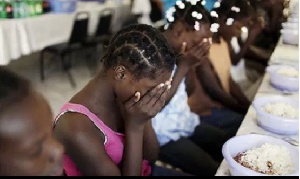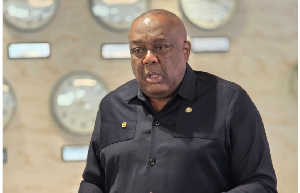Ghana has failed to meet the minimum standards for the elimination of trafficking in persons but has escaped a downgrade, a new report released by the U.S. Department of State has revealed.
According to the 2017 Trafficking in Persons (TIP) report released Tuesday, though Ghana made some efforts, it did not demonstrate increasing efforts compared to the previous reporting period of 2016.
The 2017 TIP report is under the theme “Enhancing Criminal Accountability and Addressing Challenges in Prosecution Efforts,” and seeks to stimulate action and create partnerships around the world in the fight against modern slavery.
The report includes narratives for 187 countries and territories, including the United States.
On the narrative on Ghana, the report said the government of Ghana in the year under review “did not convict any traffickers under the anti-trafficking law,” something it attributed to insufficient resources for investigation and prosecution.
That, the report said, “led to inadequate evidence collection and hindered prosecution efforts”. Per the report, victim protection services remained limited, and the lack of systematic data collection hindered efforts to monitor, analyze, and report on anti-trafficking efforts.
It observed that the government has devoted sufficient resources to a written plan that, which if implemented, would constitute significant efforts to meet the minimum standards.
Again the report revealed the government “did not report comprehensive statistics on its anti-trafficking law enforcement efforts between January 1 and December 31, 2016.
The Ghana police service anti-human trafficking unit (AHTU), according to the report, conducted 118 investigations of potential trafficking crimes, compared with 238 investigations in 2015. Of the figure, 114 were for labour trafficking and four for sex trafficking, the report said.
The Attorney General’s department also reviewed 217 open investigations of the Greater Accra AHTU and determined many cases were inadequately investigated. Per the report, only five cases were recommended for prosecution by state attorneys but noted those cases were not taken to trial during the period under review.
“As in the previous reporting period, the government reported no convictions under the anti-trafficking act in 2016; however, the government reported seven convictions for offenses using other statutes that resulted in lesser penalties,” the reported noted. Despite these, Ghana was spared a downgrade to tier 3 in the ranking.
“Ghana was granted a waiver per the Trafficking Victims Protection Act from an otherwise required downgrade to Tier 3. Therefore, Ghana remained on Tier 2 Watch List for the third consecutive year,” the report said.
Commenting on the report, U.S. Ambassador to Ghana Robert Jackson said, the government has taken initial steps this year to protect Ghanaian men, women and children from being enslaved and with support, Ghana will achieve the minimum standards.
“We urge the government to remain vigilant and to fully implement the new national plan of action against trafficking. When funded as promised, Ghana will be better able to prevent and prosecute trafficking and provide support services for victims of trafficking in Ghana,” he said.
Espousing the theme of the report, he underscored the need for traffickers to be held criminally accountable. The ambassador said unless Ghanaians work with law enforcement agencies and the courts to bring traffickers to justice, “they will continue to commit these horrific crimes.
“This isn’t about what the United States wants Ghana to do. It’s about Ghanaian men, women and children who are suffering because traffickers are allowed to violate Ghana’s laws and morality,” he said
General News of Wednesday, 28 June 2017
Source: 3news.com













